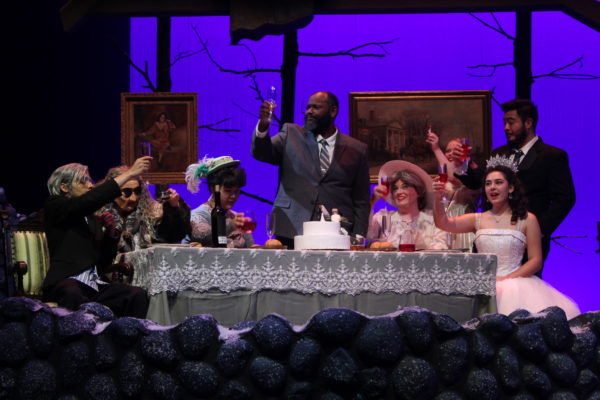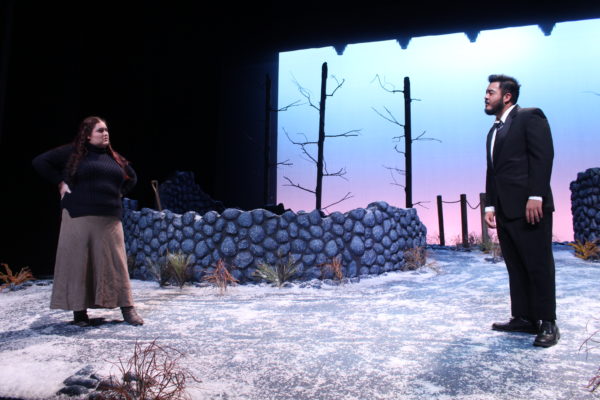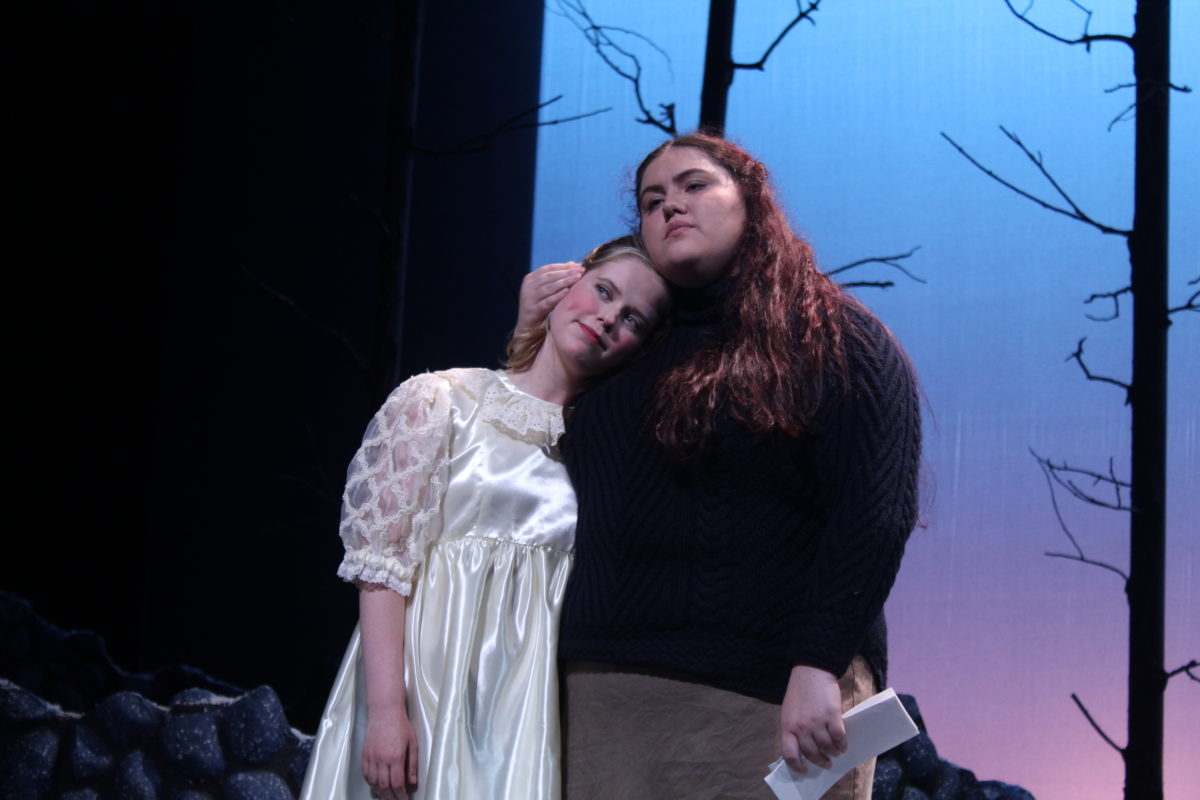Loosely based on Euripides’ tragedy Medea, “By the Bog of Cats” written by Marina Carr and directed by Candice Martinez-Clasby for Fullerton College Theater follows Hester Swane, as she navigates abandonment, the many sides of love, and the legacies we inherit. Set in Ireland, the story blends truth and fantasy to craft the story of a woman and her overwhelming love for everything around her, those already gone, and those hanging only by a thread.
In the Campus Theatre, the stage transformed into a barren, snowy landscape. Frozen bricks and the home of Hester Swane took up the space, and the audience cannot help but be thrown into her frigid lifestyle. Her journey to reconcile with her mother’s abandonment, a runaway husband, and her caught-in-the-middle daughter meets the eccentric qualities of both the bog and its inhabitants.
“I love the idea of the circle of life, right?” said director Candice Martinez-Clasby. “Generationally, there’s all that, like, do you take on the sins of your father? Or, do you take on the sins of the mother, in this case. How can you change that path? What’s the right way to change that path?”
Decide for yourself- the play will run for a limited time from Oct. 12 to Oct. 14 starting at 7:30 p.m.

Marina Carr herself is an Irish playwright, the play heavily draws from Irish myth. The strange and mystical Catwoman can not only speak to ghosts, but give prophecies and wisdom. Her connection to nature and the bog proves essential to both her identity, and the story itself.
In the play, the issue of heritage comes up time and time again.
She emphasizes, “I think there’s a lot of themes in here that students can resonate with… any walk of life. The fights between mother and child, or father and son, but also finding love and finding it in different people.”
Hester’s conflict with her past comes to haunt her, and the embers of her relationships with family draw her into a whirlwind of desperation. Desperation to cling and to love– a perfectly human instinct, but turned sour by human flaws.
Actress of the 60-year-old Monica Murray, Faith Kim, said, “Hester, although she’s a mother, she’s a little girl.”
The conflict between a not-so-distant past and an already-here future for Hester lies in that line; the lasting effect parents leave upon their children and the cycles that continue after they are gone play out through her. Kim’s own character, Monica, serves as a guiding light for the ways that family exists outside of blood.
Martinez-Clasby said, “I’ve been very lucky in having a really good, supportive family. A lot of students I know don’t.”

“It, to me, is reflective of the theater community here on campus,” she continued. “We try to create a safe space, trying to create more of a family dynamic of, these are the people you’re gonna walk through life with. You know, it’s not a competition, it’s a support system that we’re building for you as you go out there.”
Isabelle Tuff, actress of Hester Swane reflected, “It’s kind of cool to see that like, oh, finally a woman who’s not, like, stopping herself just because men, or other people want her to.”
“Hester’s so grounded she allows herself to feel everything,” Tuff stressed. “She does not hide it, she’s not afraid of anyone.”
Carthage Kilbride, the father to Hester’s child and soon-to-be married to another woman chilled the room with his conflicting anger, and paternal instincts.
Actor Mihr Christian Pinga, playing Carthage, said, “The main thing about the story, I feel like especially for Carthage, I think he means well, but sometimes we fail to see that good intentions can seem really selfish to other people, that even though we mean good, we still harmed the people around us.”
The story and its pieces roll unflinching, barreling forward with the force reminiscent of a train with no brakes. By the end, the room filled with a warmth that could be created only by the flames of love. Tuff puts it best: “Hell hath no fury, like a woman scorned.”


